New energy technologies shaping tomorrow's post-carbon era: how Equans is leading the charge
The energy transition is not a simple shift made possible by behavioral changes; it is also a complex interplay of low-carbon, cutting-edge technologies. Firmly believing in the potential of new energy technologies to address our challenges, Equans concentrates on eight key sectors to empower its clients' transition, striking a balance between global efficiency and operational sustainability.Pioneering storage solutions for intermittent energies
Energy storage is critical for managing the intermittency of renewable energy sources like solar and wind. The main challenges include storage capacity, cost, and energy efficiency and are directly linked with the need for effective storage solutions.
Among new energy technologies, solar energy is a cornerstone in the energy transition, offering a renewable, low-cost, and secure electricity source. As a result, Solar Photovoltaic technology has seen a tenfold increase in global capacity over the last decade, becoming a leading and cost-effective electricity source.
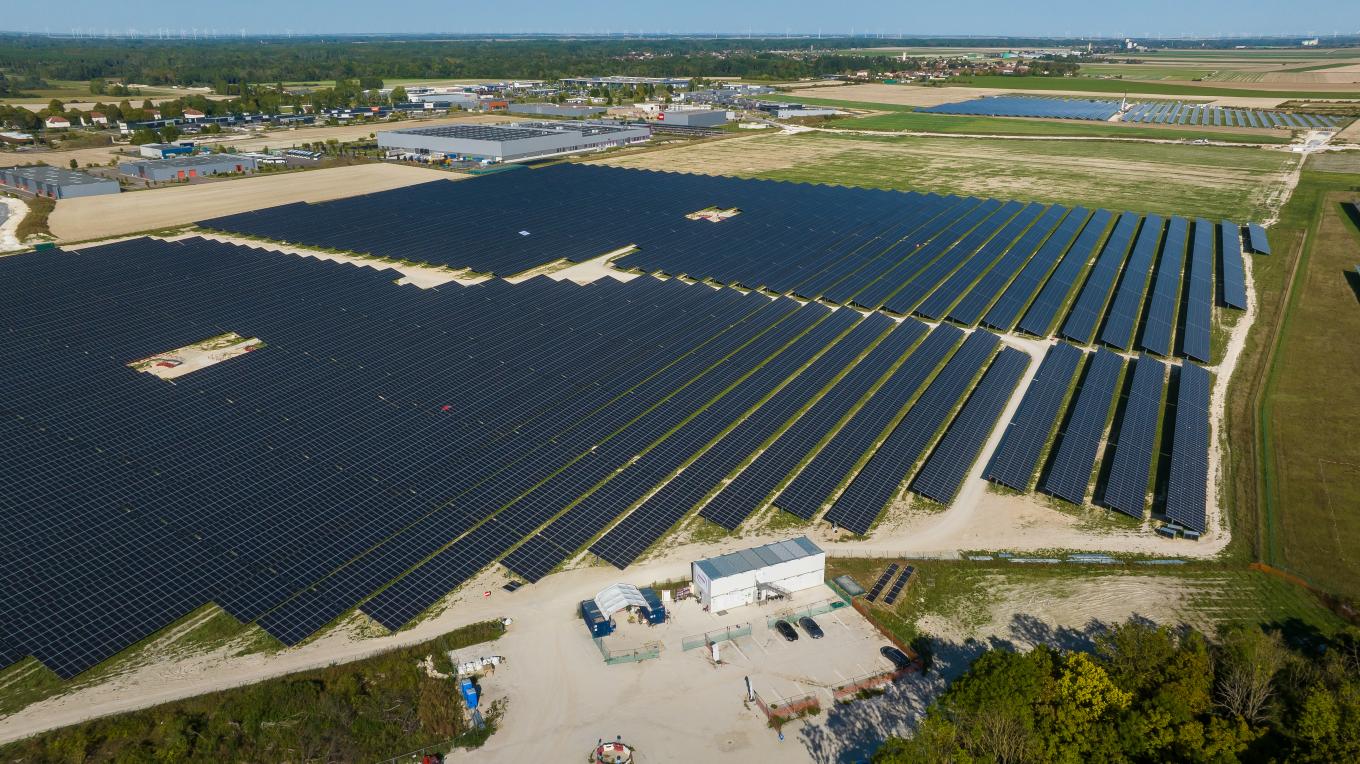
However, it faces challenges such as the need for energy storage, grid integration, and site selection for large installations. For 15 years, Equans Solar & Storage has been tackling these issues by developing and integrating solar and storage solutions for its clients. With a team of 1500 solar experts providing tailor-made Solar PV solutions for industrial and tertiary buildings, Equans has installed 5.5GW of solar energy and 550MWh of BESS capacity worldwide.
The company operates in two main areas to give efficient solutions: large and medium-sized plants with energy storage and grid integration, and decentralized Solar PV for self-consumption. This dual strategy aims for both large-scale and localized solutions, promoting a circular business model.
Innovation in the solar sector is also a key focus for Equans, which has developed floating PV and AgriPV solutions to address site selection challenges.
With its multi-faceted approach, Equans positions itself as the go-to partner for comprehensive, scalable, and efficient solar and storage solutions.
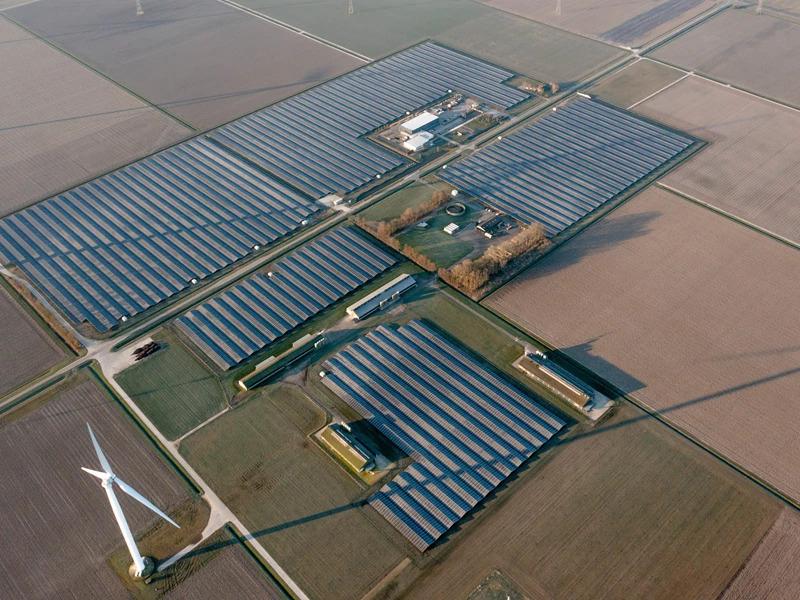
Smart Grids: a new technology for energy management
As the energy landscape evolves, the need for more efficient and sustainable energy management systems becomes paramount: by offering a more responsive and dynamic way to balance supply and demand, smart grids are at the heart of this transformation.
Equans, as an undisputed leader in smart grid, is therefore actively developing and implementing intelligent solutions that both manage demand-side responses and optimize the integration of renewable energy.
More concretely, this new energy technology constitutes a key solution, by the employment of advanced sensors, controls, and analytics tools to monitor energy flow (provides real-time adjustments to energy distribution, reducing waste) and enhance grid reliability (predicts and quickly responds to outages).
The innovation spirit of Equans can help design and implement smart grids at the regional level. For instance, in Flevoland in the Netherlands, Equans brings together central and decentralised energy producers and supports the integration of new renewable energy installations, using sophisticated networks to balance supply, demand, and storage.
By modernizing the electrical grid, Equans aims to make it more efficient and adaptable to the complexities of a decentralized and intermittent energy ecosystem.
Electrification of transports: paving the way from rails to roads
Electrification of both rail and road transport is key for reducing greenhouse gas emissions and increasing reliance on renewable energy.
In rail transport, electrification enhances efficiency and allows trains to be powered by renewables like wind or solar, making the system more reliable and attractive to users.
Similarly, with a transition toward electric mobility, road infrastructures need to be readapted.
Equans is a leader in rail and road electrification, covering the design, installation and maintenance of a vast array of electrification systems and electrical distribution networks.

For rail infrastructure, this caters to urban rail, high-speed lines, tramways, and metros. We also electrify road networks, such as through providing charging stations for heavy vehicles, dynamic refueling via overhead lines, and optimising charging networks. Equans is always ready for an innovation, especially when it comes to taking part in a sustainable and smart future.
For instance, Equans has implemented SOCRAT, a system for monitoring rail catenaries in real time, improving maintenance with instant alerts and web dashboards. It's been successfully used in French cities like Poitiers and Aubagne, showcasing Equans' expertise in enhancing rail infrastructure with smart technologies.
By spearheading electrification initiatives across both rail and road networks, Equans is making a significant impact on sustainable mobility.

AI and Robotics: a new technology for energy’s optimisation
According to research from Digital Europe, digital technologies could reduce global CO2 emissions by 20% by 2030. A McKinsey report further reveals that AI can help businesses cut their CO2 emissions by up to 10% and reduce energy costs by 10-20%.
Standing at the forefront of integrating Artificial Intelligence (AI) into its decarbonization strategy, Equans explores the synergy between AI, climate change, and energy to enhance an emerging transition combining performance and durability.
Concretely, Equans is harnessing the limitless power of artificial intelligence to help us predict future energy trends and efficiencies on both the global and project scale. The company uses predictive AI models to test its theories on how to decarbonise most effectively to get to a zero carbon strategy, helping us improve the development of most informed strategies possible. Equans also uses sophisticated machine learning models to spot hidden patterns, identify energy inefficiencies and emissions sources in complex datasets, helping us optimise industrial processes to a precise degree.
Thus, by feeding and processing vast historical data related to energy consumption and production into predictive models, these new energy technologies allow real-time decision-making and the development of proactive strategies to reduce Equans’ client carbon footprint.
The company has already used AI to help many clients establish themselves in the market industry. Using its predictive AI software, Equans helped the Opéra National de Lyon improve the reliability of its energy performance, and Angers Loire Métropole to predict parking demand and improve parking efficiency across the city of Angers.
AI also helps maximize the use of renewable energy and minimize reliance on fossil fuels by assisting intermittent energies suppliers to more accurately monitor the flow of electricity in real-time. This enables better management of demand-side response and supports the development of a low-carbon energy market.
Nuclear Energy: a complementary force in renewable energy
Nuclear power plants in operation emit negligible amounts of greenhouse gases or atmospheric pollutants. Their emissions throughout their lifecycle are extremely low, making them an essential complement to renewable intermittent energy sources.
Through its subsidiary, Ineo Nucléaire, Equans has been an expert in electrical engineering and a multi-technical solutions integrator for over 50 years.
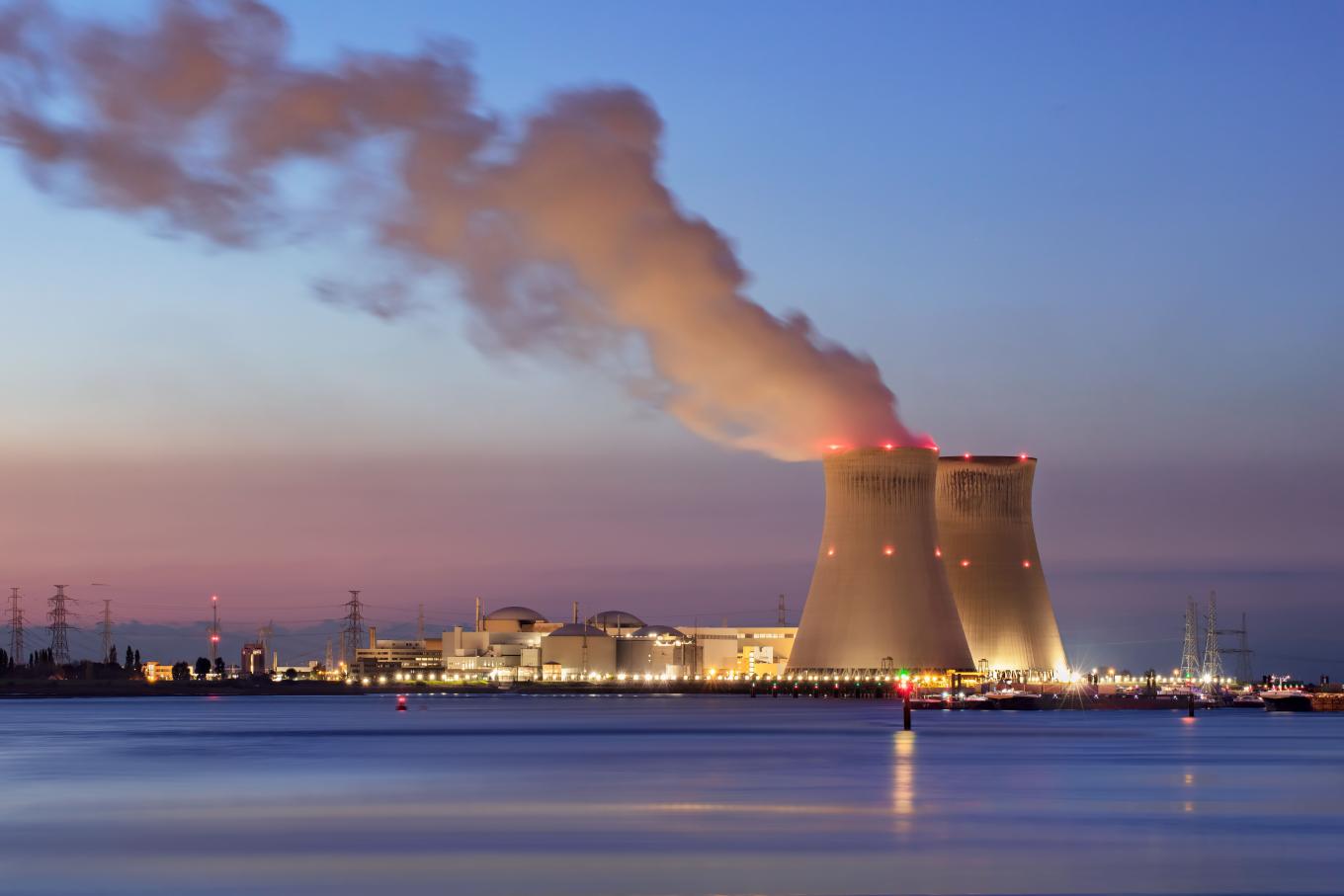
Its services encompass studies, project management, maintenance to disseminate energy everywhere, for everyone, all the time, and safely.
By addressing its services to this energy source, Equans aims to strengthen its balanced position offering an energy mix that includes both renewable and nuclear energy.

Smart Buildings: Equans' holistic approach to energy efficiency
Buildings consume 44% of France's total energy and yet, only 6% of French tertiary buildings use a Building Management System (BMS) to optimize energy use. Equans, a leader in this space, advocates for smart buildings as a new technology for energy efficiency.
By using automation and real-time analytics to optimize energy, Smart Buildings are integrated systems with digital features that improve energy efficiency, air quality, and security.
With expertise in climate and digital technologies, Equans plays a significant role in the development of smart buildings, by integrating AI and Internet of Things technologies (IoT) to reduce the carbon footprint of buildings.
The company offers end-to-end solutions, from electrical engineering to IT and maintenance, covering all aspects of a building's life cycle. A holistic approach that provides immediate cost savings and long-term sustainability benefits.
The Internet of Things’ revolution
The Internet of Things (IoT) plays a crucial role in energy transition by enabling efficient data collection and analysis across key sectors like grids, transport, and buildings. This leads to optimized energy consumption, better integration of renewables, and reduced emissions.
This new technology for energy offers continuous monitoring for predictive maintenance, preventing costly breakdowns. At the same time, it also facilitates the integration of new energy technologies by coordinating production, storage, and consumption, contributing to the creation of smart grids.
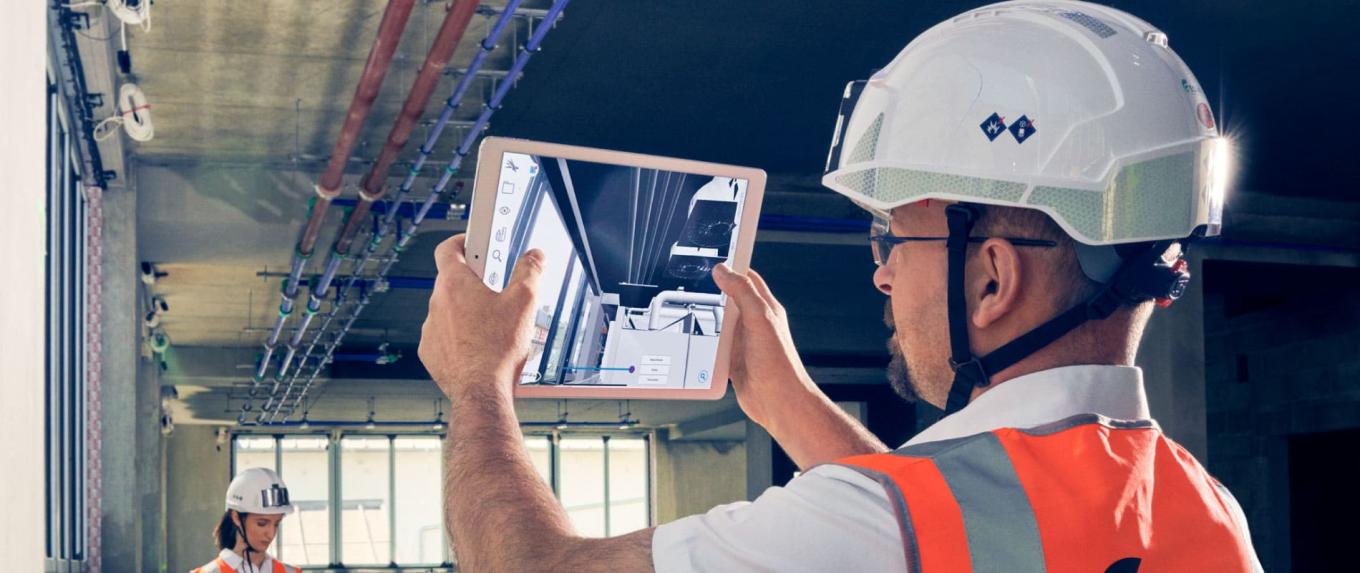
For buildings and cities, IoT can automate lighting, heating, and ventilation to maximize energy efficiency.
For example, in the UK, Equans uses the SMARTR platform to connect every aspect of an estate, be it heating, lighting, ventilation, or something else entirely. Through the power of sophisticated sensors, building owners see exactly how systems and resources are used, and to swiftly make modifications – for example, to avoid inefficient energy use. Such integrated systems are likely essential for a clean, sustainable future.
Equans, with its skilled teams, leverages IoT to contribute to decarbonisation and improve energy performance, particularly in industrial and building sectors, while empowering also communities to become active participants in this journey.
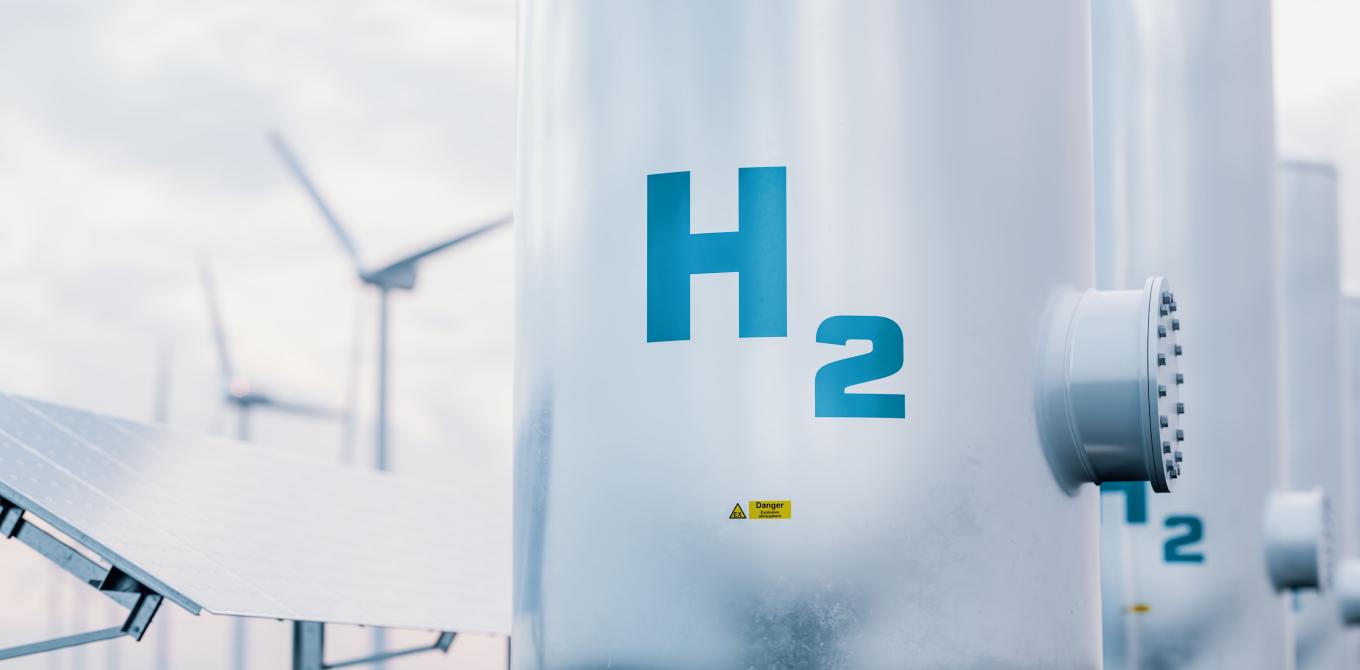
Decarbonising industrial worksites
Industrial activities were responsible for approximately 21% of global greenhouse gas emissions in 2019. Traditionally, fossil fuels in industrial processes, diesel-powered machinery and energy-inefficient worksite bungalows are the norm.
To tackle this, Equans is committed to decarbonizing worksites using a multi-pronged approach.
For instance, the company is investing massively in hydrogen technologies to replace fossil fuels in industrial processes. Indeed, Equans believes firmly that Hydrogen power is an emerging industry with huge potential, likely to account for 10-15% of global energy supply in the future. Equans’ Hydrogen Innovation Business Club is therefore investigating how hydrogen produced through renewable energy, known as green hydrogen, can be effectively integrated into the clean energy strategies of a number of European nations.
Equans also helps its clients transition to electric machinery, which not only reduces emissions but lowers long-term operating costs at the same time. The company also offers energy-efficient bungalows equipped with smart energy management systems.
By integrating these new energy technologies, Equans covers the entire energy value chain, from production to utilization. This positions the company as a comprehensive partner in the energy transition, aiming to significantly reduce the carbon footprint of industrial worksites.